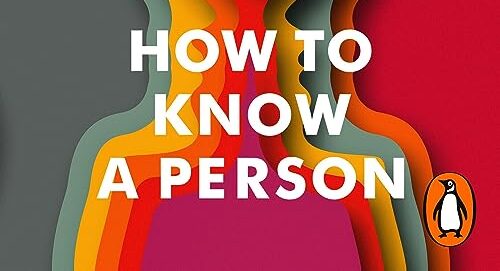I found inspiration in David Brooks’ most recent publication, “How to Know a Person, The Art of Seeing Others Deeply and Being Deeply Seen,” which was released last autumn. The book caught my attention due to a remark made by a former student around the same period.
The student expressed, “Your speech class boosted my confidence in conversations that previously made me uneasy.” Such feedback is cherished by educators—a student deriving value from a course not even mandated! I must admit, I adopt a conversational teaching style, a perk of smaller class sizes. On the initial day of class, I forewarn all my students: “I’ll acquaint myself with you more than your other professors, and you’ll reciprocate.”
In “How to Know a Person,” the book’s ambitious objectives can be met through a dedication to fostering improved conversations. Not merely easier or more entertaining dialogues, but meaningful ones. While delving into the content, I often found myself in agreement, nodding along.
John Dickerson, in his analysis of the book, asserts that enhancing individual interactions—be it in listening, conversing, or what Brooks terms the ‘close at hand’—could potentially have a ripple effect on society, despite the inherent challenges in human relationships.
Brooks’ writing style has always captivated me, prompting me to peruse his columns, not solely for concurrence but for the sheer pleasure of his prose. Chapter 7, titled “The Right Questions,” delineates strategies to enhance our interpersonal bonds. Brooks notes that approximately 30% of individuals possess a natural inclination for questioning, leaving the remaining 70% more inclined towards self-presentation in conversations. This disparity underscores the importance of fostering genuine curiosity and dialogue.
Navigating through the responses elicited by my recent column, I encountered diverse perspectives that sparked meaningful exchanges. Richard Wolfson from Portsmouth, Ohio, commended the column’s essence while cautioning against oversimplification, particularly in conflating terms like “ignorant” and “wicked.” His insight prompted me to reflect on the nuances of my argument and deepen the discourse.
Subsequently, Mike Harbor, seemingly a resident of Indiana, expressed longstanding discontent with my writings, perceiving a bias against conservative ideologies. While recommending educational readings, he overlooked my familiarity with the suggested authors. Unlike the constructive dialogue initiated by Wolfson, Harbor’s critique appeared more focused on self-expression rather than mutual understanding.
In his concluding chapter, Brooks references the poignant park bench scene in “Good Will Hunting,” where Robin Williams’ character transcends Matt Damon’s defensive facade through genuine connection. This cinematic moment encapsulates the transformative power of authentic engagement and the profound impact of truly seeing and being seen by others—a testament to the potential for positive change through meaningful conversations.
